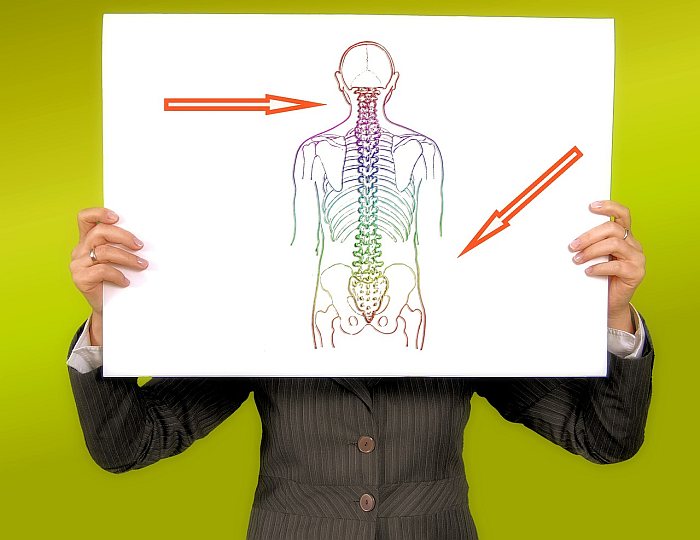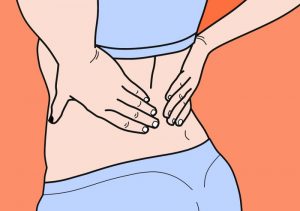There’s no exaggeration and no hyperbole involved here. A back injury, whether it’s an instant spinal trauma or damage caused by strain over time, will change your life. Chronic pain, reduced mobility, and even partial or complete paralysis are just some of the dangers. Back injuries remain some of the most common and the most troubling of injuries seen both through accidents and in incorrect fitness measures.
Here, we’re going to look at how to prevent them and how to react to them.

Know the signs
Spinal cord trauma is the most serious kind of back injuries. Making the wrong move after sustaining one can put you in lethal danger whereas seeking quick treatment can help you improve your chances of making it out of the injury in better condition. The sooner you recognize a spinal injury, the better your chance of preventing more serious injury. www.MayoClinic.org provides great information on the signs of emergency spinal injury, including extreme pain or pressure in the neck, back or head and numbness or weakness in any part of the body. If you suspect you or someone with you has suffered a spinal injury, the most crucial point to remember is that you don’t move them and help them stay still while you call the emergency services and provide first aid like stopping any bleeding.
Drink responsibly
Reckless drinking comes with a plethora of risks to an otherwise healthy lifestyle. www.LawsuitLegal.com provides statistics on the causes of back injuries. Most notable of all the stats mentioned is the fact that of an estimated 12,000 spinal injuries a year, alcohol plays a role in 25% of them. Most prominent of all alcohol-related risks is drink driving. If you plan on drinking, make sure to take plans that prevent you from driving. Go out with a designated driver and hand your keys to someone who isn’t drinking. Even without worrying about a serious spinal injury, drinking alcohol has been shown in studies to lead to an increased risk of chronic back pain.

Drive smartly
You don’t need alcohol involved to be in a road accident, of course. Mitigate your risks by tackling the different risk factors when driving. Set rules that help you avoid distraction, such as turning the phone off when you drive and being firm about passengers talking too much. Keep your car well maintained and prioritize safety features more highly when choosing a car. You aren’t in control of other drivers on the road, of course. When it comes to them, learning defensive driving is your best bet. It’s a practice of driving that keeps you aware of what other vehicles are doing and always being able to find the way out of a high-risk situation.
Sport safely
Athletes have a lot more cause for concern than most when it comes to avoiding or sustaining a back injury. It doesn’t matter what level you play at, the more contact involved in the sport, the higher your risk is. Even if it’s a white-collar weekend league, don’t play without investing in protective gear such as a helmet and the appropriate pads. Supportive shoes are just as crucial in helping you maintain grip and posture during the game, as well. You’re less likely to take a spill that could lead to a spinal injury. As far as lighter back traumas go, make sure you’re conditioning your body responsibly. Stretch before and after a game. Stay hydrated to avoid heat injuries. Get plenty of rest and support your active lifestyle with a balanced diet.

Exercise efficiently
Even compared to sports fanatics, anyone lifting weights is at a much higher degree of risk. Ask any professional weight lifter or coach about the importance of proper form and they can list a litany of horror stories involving spinal injuries from lifting. As www.Spine-Health.com shows, it’s all about being informed. First, stay informed with the proper technique when it comes to any kind of lift. Using your hips, not your back is an obvious one, but there’s plenty more there. Also, stay informed of your own limits. Lifting more than you previously could is all part of the game for many, but don’t forget to listen to your body. If it feels like you’re straining it too much, you probably are. Err on the side of caution when it comes to lifting weights.
Watch your step
Previously, we mentioned how supportive shoes are important in sports for avoiding a spill. Take that caution with you everywhere, but especially in the workplace. The majority of slips, trips, and falls happen at work. Especially in professions like construction or in warehouses, where there are greater risks all around. Never skip safety precautions. If somethings of a high shelf, always use a ladder or the provided equipment. Again, invest in proper work boots that are attuned to the environment. That’s particularly pertinent if you do any of your work in the outdoors.

A little support
Learning the basics of back health are going to lower your chances of less serious injuries, as well. While not as dramatic as spinal damage, back pain can easily become a chronic, life-long struggle. Especially when repeat injuries are involved. Offering your back more support, whether it’s using an ergonomic chair in the office or a memory foam mattress in the bed, is going reduce the pressure your back experiences over time. If you feel pain, treat it before it becomes a serious issue. Massage, relaxation techniques, stretches, and chiropractic treatments are all popular means of treating back pain. One piece of advice you should soundly ignore is the idea of resting in bed as much as possible. Modern wisdom shows that over a day or two of bed-rest following a back injury can actually worsen the issue. Take it easy, but take steps to get back on your feet, providing it’s a back injury and not a spinal injury.
Prevention is obviously the key here. But it’s important to always remember what to do in the event that you or someone you care about suffers a back injury. From immediate reactions to spinal injury to the treatment of chronic back pain, it pays to be informed about these most insidious of traumas.



Leave a Reply